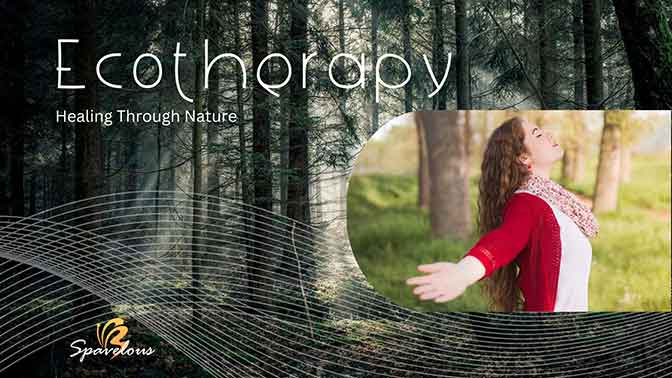Ecotherapy: Healing Through Nature
In today’s fast-paced and technology-driven world, many individuals find themselves longing for a deeper connection with the natural world. Ecotherapy, also known as nature therapy or green therapy, offers a profound way to harness the healing power of nature for the betterment of mental and emotional well-being.
This therapeutic approach recognizes that the natural environment can uniquely restore balance and promote healing in individuals.

The Essence of Ecotherapy
Ecotherapy is grounded in the belief that humans have an inherent connection with the natural world, and this connection plays a vital role in their mental and emotional health. It acknowledges that spending time in nature can have therapeutic effects, fostering a sense of calm, reducing stress, and promoting overall well-being.
Key Principles of Ecotherapy
- Biophilia: This therapy aligns with the concept of biophilia, which suggests that humans have an innate love for and connection with nature. Being in natural surroundings can evoke positive emotional responses and reduce anxiety.
- Mindful Presence: Similar to mindfulness meditation, ecotherapy encourages individuals to be fully present in the natural environment. It invites them to engage their senses, observe, and connect with nature’s sights, sounds, and sensations.
- Restorative Nature: Nature provides an opportunity for individuals to “unplug” from the demands of modern life. The peacefulness and simplicity of natural settings allow for rest and rejuvenation.
- Nature as a Mirror: Ecotherapy often uses nature as a metaphorical mirror. Individuals may project their thoughts, emotions, and challenges onto the natural world, facilitating self-reflection and personal growth.
Forms of Ecotherapy
Ecotherapy takes on various forms, each tailored to meet different needs and preferences:
1. Wilderness Therapy:
This form of ecotherapy involves immersive outdoor experiences, often in wilderness settings. Participants engage in activities like hiking, camping, and group discussions to promote personal growth and healing.
2. Horticultural Therapy:
Organic Gardening and working with plants are central to horticultural therapy. It improves mental health, boosts self-esteem, and develops practical skills.
3. Animal-Assisted Therapy:
Interactions with animals, such as equine therapy and spending time with therapy dogs, can promote emotional healing and the development of trust and empathy.
4. Adventure Therapy:
Adventure therapy combines outdoor activities like rock climbing and rafting with therapeutic processes. It encourages individuals to step out of their comfort zones and face challenges.
5. Nature Mindfulness:
This form involves guided mindfulness practices in natural settings, helping individuals connect with the environment and reduce stress.
Benefits of Ecotherapy
Ecotherapy offers a range of benefits that contribute to mental and emotional well-being:
- Stress Reduction: Spending time in natural surroundings has lowered cortisol levels and reduced stress.
- Improved Mood: Nature’s beauty and tranquility can elevate mood and reduce symptoms of anxiety and depression.
- Enhanced Resilience: Ecotherapy fosters resilience by helping individuals develop coping strategies and greater self-awareness.
- Connection: It promotes a deeper connection with the natural world, fostering a sense of belonging and purpose.
- Self-Discovery: Ecotherapy encourages self-reflection and personal growth, leading to a better understanding of one’s values and priorities.
Conclusion
Ecotherapy is a powerful and holistic approach to healing that embraces the therapeutic potential of the natural world. Connecting with nature through wilderness adventures, gardening, or animal-assisted interactions can provide deep solace, peace, and improved mental and emotional well-being.
In a world that often disconnects us from the outdoors, this therapy gently reminds us of our innate bond with the natural world. It opens a doorway to personal growth, healing, and a renewed appreciation for the beauty and simplicity found in nature.
Embracing this therapy allows our hearts and minds to be nourished by the environment that sustains us. It offers a holistic path to wellness by reconnecting us to the rhythms and wonders of the natural world. Wherever we find nature – in a park, garden, or even our own backyard – we have an opportunity to be healed and inspired if we open our senses.